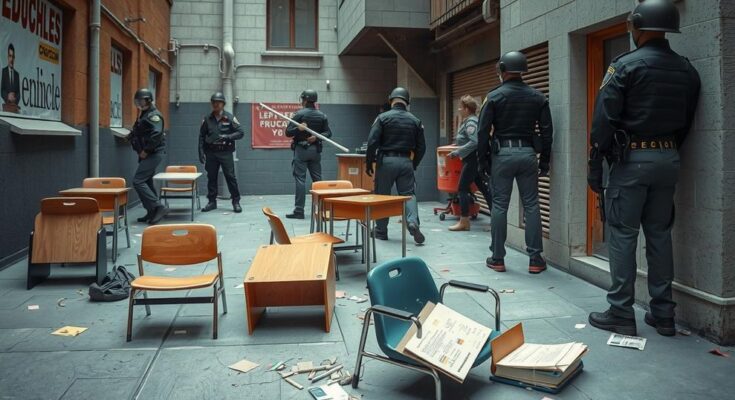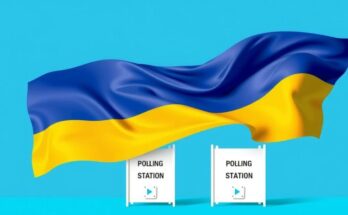Several private primary school teachers in Bangladesh protested for nationalization, facing police violence that resulted in injuries. Organized by the Bangladesh Non-government Primary Teachers Association, the demonstration highlighted urgent needs in the education sector, including demands for recognition of special schools under the current interim government. The protests reveal growing discontent with the government’s educational policies and practices.
On Wednesday, several private primary school teachers in Bangladesh faced police violence during a protest demanding the nationalization of their schools. The demonstration occurred in Dhaka near the Jatiya Press Club, where law enforcement used batons and water cannons against the teachers, resulting in injuries to at least six individuals, including two women.
The protesting teachers, organized under the Bangladesh Non-government Primary Teachers Association, aimed to march to the residence of Chief Advisor Muhammad Yunus to present their demands. Shahinur Rahman, a participant, condemned the police response, stating, “they were marching towards Jamuna…but police used water cannon unjustifiably.”
Liakat Ali, another teacher, voiced frustration over the government’s inaction, saying, “If the government had taken proper measures, we would not have had to take to the streets.” Firoz Uddin, General Secretary of the association, highlighted systemic issues preventing nationalization, claiming that about 800,000 students are denied their fundamental rights due to political and bureaucratic obstacles.
In a related incident, police also intervened against teachers protesting for special schools for disabled students. They demanded recognition and financial support for multiple concerns, including the establishment of facilities tailored for special needs students and employment opportunities under vocational programs.
The protests have raised questions about the interim government’s effectiveness, especially regarding its handling of education sectors. Media sources noted that the government is still struggling with distributing textbooks to countless students, further illustrating its administrative shortcomings.
In conclusion, the recent protests by primary school teachers in Bangladesh underscore significant frustrations regarding educational policies and the handling of basic rights by the interim government. Violence by police during these demonstrations reveals pressing issues surrounding governance and public service inadequacies, with thousands of students affected by the lack of nationalization of primary schools and essential educational resources for special needs students. Advocacy for reform has intensified as teachers seek recognition and support for their demands.
Original Source: www.thehansindia.com




